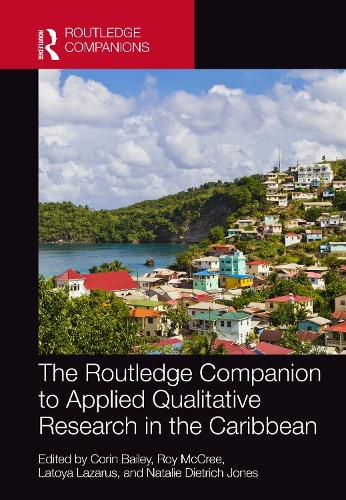Readings Newsletter
Become a Readings Member to make your shopping experience even easier.
Sign in or sign up for free!
You’re not far away from qualifying for FREE standard shipping within Australia
You’ve qualified for FREE standard shipping within Australia
The cart is loading…






This cutting-edge book provides a comprehensive examination of applied qualitative research in the Caribbean. It highlights the methodological diversity of qualitative research by drawing on various approaches to the study of Caribbean society, addressing the lack of published qualitative research on the region.
Featuring 17 chapters, the book covers five key areas, namely Overview and Introduction; Gender, Crime, and Violence; Gender and Intimate Partner Violence; Health, Management, and Public Policy; and Migration and Tourism. Throughout the course of the book, the chapters explore how different kinds of qualitative research can be used to inform public policy and help deal with a myriad of socioeconomic problems that affect Caribbean people. The book further uses distinct approaches to showcase a diverse selection of qualitative research methods, such as autoethnography, life history, narrative enquiry, participants' observation, grounded theory, case study, and critical discourse.
The book will be beneficial for students and scholars both from the Caribbean and internationally who are engaged in the conduct of qualitative empirical enquiry. It will further hold appeal to advanced undergraduate level classes and postgraduate students along with scholars in the fields of social sciences and education.
$9.00 standard shipping within Australia
FREE standard shipping within Australia for orders over $100.00
Express & International shipping calculated at checkout
This cutting-edge book provides a comprehensive examination of applied qualitative research in the Caribbean. It highlights the methodological diversity of qualitative research by drawing on various approaches to the study of Caribbean society, addressing the lack of published qualitative research on the region.
Featuring 17 chapters, the book covers five key areas, namely Overview and Introduction; Gender, Crime, and Violence; Gender and Intimate Partner Violence; Health, Management, and Public Policy; and Migration and Tourism. Throughout the course of the book, the chapters explore how different kinds of qualitative research can be used to inform public policy and help deal with a myriad of socioeconomic problems that affect Caribbean people. The book further uses distinct approaches to showcase a diverse selection of qualitative research methods, such as autoethnography, life history, narrative enquiry, participants' observation, grounded theory, case study, and critical discourse.
The book will be beneficial for students and scholars both from the Caribbean and internationally who are engaged in the conduct of qualitative empirical enquiry. It will further hold appeal to advanced undergraduate level classes and postgraduate students along with scholars in the fields of social sciences and education.